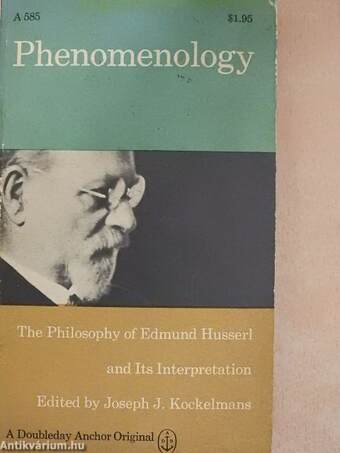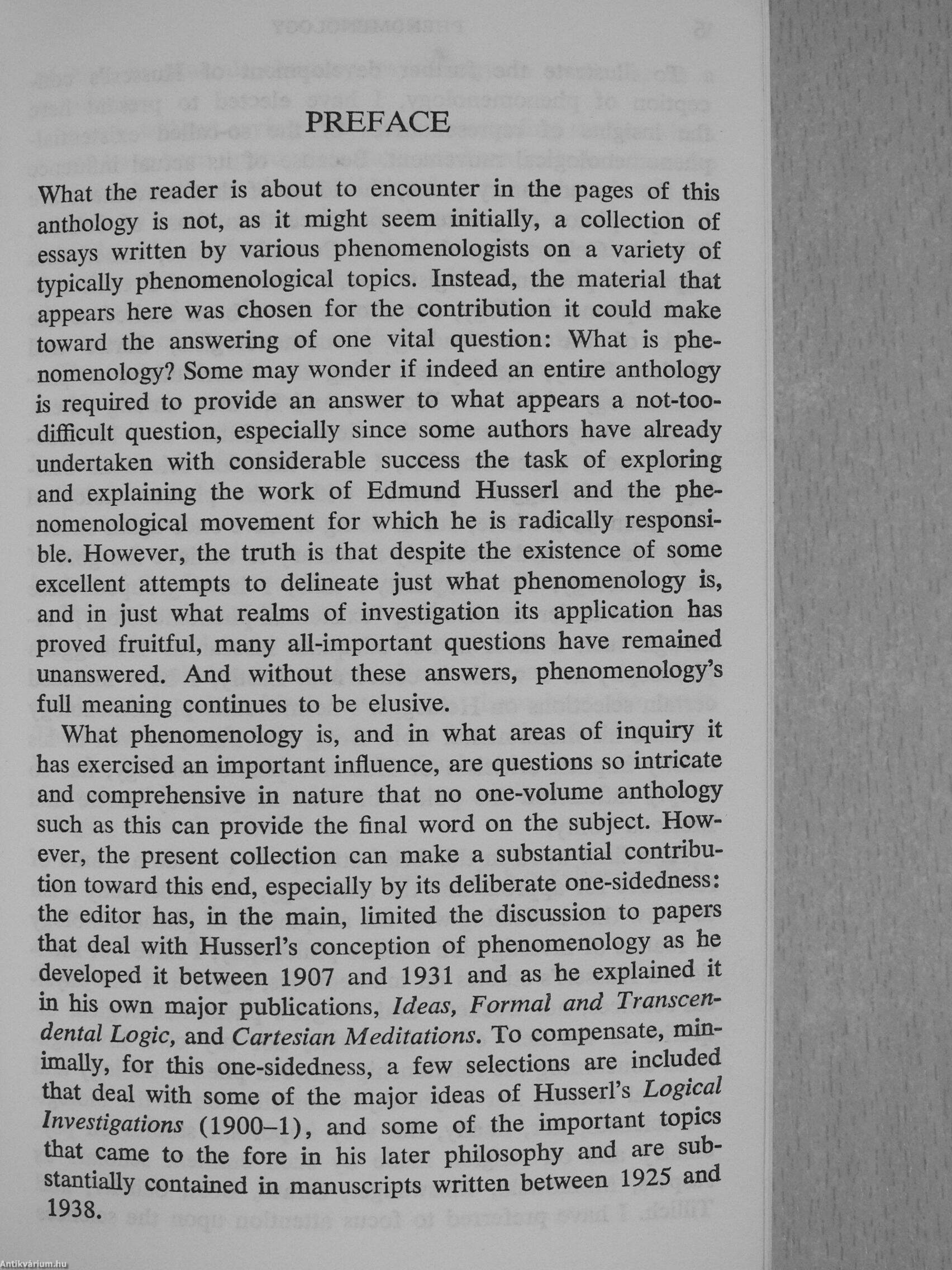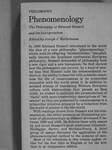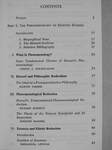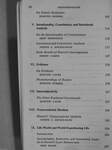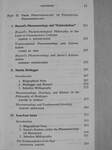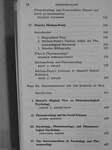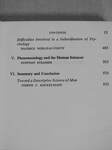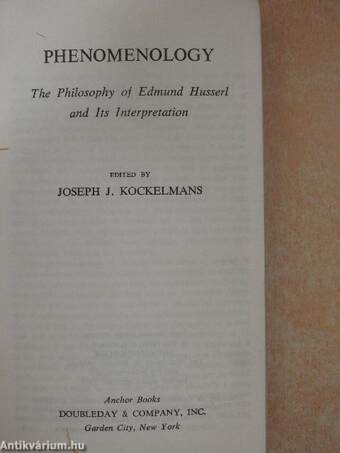1.067.317
kiadvánnyal nyújtjuk Magyarország legnagyobb antikvár könyv-kínálatát

VISSZA
A TETEJÉRE
JAVASLATOKÉszre-
vételek
Phenomenology
The Philosophy of Edmund Husserl and Its Interpretation
| Kiadó: | Doubleday & Company, Inc. |
|---|---|
| Kiadás helye: | Garden City |
| Kiadás éve: | |
| Kötés típusa: | Ragasztott papírkötés |
| Oldalszám: | 555 oldal |
| Sorozatcím: | Doubleday Anchor Original |
| Kötetszám: | A 585 |
| Nyelv: | Angol |
| Méret: | 18 cm x 11 cm |
| ISBN: | |
| Megjegyzés: | További szerzők a könyvben. |
naponta értesítjük a beérkező friss
kiadványokról
naponta értesítjük a beérkező friss
kiadványokról
Előszó
TovábbFülszöveg
PHILOSOPHY
Phenomenology
The Philosophy of Edmund Husserl
and Its Interpretation
Edited by Joseph J. Kockelmans
In 1900 Edmund Husserl introduced to the world the idea of a new philosophy, "phenomenology," which, with its offspring "existentialism," has gradually become the dominant continental European philosophy. Husserl demanded of philosophy both a new rigor and a new humanism. He first showed how the philosopher can recover, by a kind of mental leap that Husserl calls the transcendental reduction, the ability to describe with scientific exactness the life of consciousness in its primordial encounter with the world about it. In addition he accused science of inundating Western European culture with abstractions that parade as final truth; he wished to underpin the accumulations of "facts" with more trustworthy descriptions of "essences" as they are presented to consciousness in a primordial intuition prepared by a reduction from the world of science to the life-world.... Tovább
Fülszöveg
PHILOSOPHY
Phenomenology
The Philosophy of Edmund Husserl
and Its Interpretation
Edited by Joseph J. Kockelmans
In 1900 Edmund Husserl introduced to the world the idea of a new philosophy, "phenomenology," which, with its offspring "existentialism," has gradually become the dominant continental European philosophy. Husserl demanded of philosophy both a new rigor and a new humanism. He first showed how the philosopher can recover, by a kind of mental leap that Husserl calls the transcendental reduction, the ability to describe with scientific exactness the life of consciousness in its primordial encounter with the world about it. In addition he accused science of inundating Western European culture with abstractions that parade as final truth; he wished to underpin the accumulations of "facts" with more trustworthy descriptions of "essences" as they are presented to consciousness in a primordial intuition prepared by a reduction from the world of science to the life-world.
With readings drawn from Husserl and his commentators, the editor presents an illuminating portrait of phenomenology as HUsserl developed it between 1900 and 1938. He follows them with essays by and about Husserl's most celebrated followers: Heidegger, Sartre, and Merleau-Ponty. A third group of essays discusses the application of the phenomenological method to the sciences of man.
Most of the selections in this volume appear either for the first time in English or for the first time in an inexpensive edition. Vissza
Témakörök
- Filozófia > Témaköre szerint > Ontológia (Lételmélet) > Egyéb
- Filozófia > Témaköre szerint > Tanulmányok, esszék
- Filozófia > Témaköre szerint > Filozófiatörténet > Irányzatok
- Idegennyelv > Idegennyelvű könyvek > Angol > Filozófia > Témaköre szerint > Tanulmányok, esszék
- Idegennyelv > Idegennyelvű könyvek > Angol > Filozófia > Témaköre szerint > Filozófiatörténet > Irányzatok
- Idegennyelv > Idegennyelvű könyvek > Angol > Filozófia > Témaköre szerint > Ontológia (Lételmélet) > Egyéb
Megvásárolható példányok
Nincs megvásárolható példány
A könyv összes megrendelhető példánya elfogyott. Ha kívánja, előjegyezheti a könyvet, és amint a könyv egy újabb példánya elérhető lesz, értesítjük.



